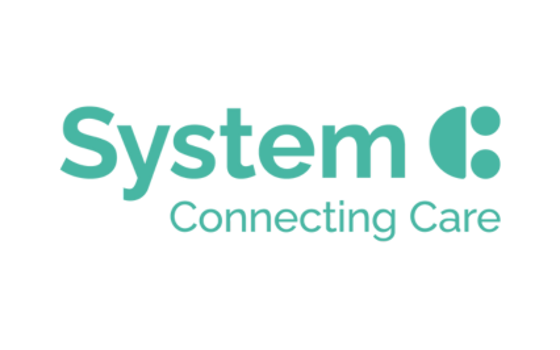 The six NHS health boards across the North of Scotland have gone live with a joint electronic medicines management platform to enhance clinical decision-making and reduce the risk of errors. The first ever multi-locality deployment of System C's pharmacy stock control (PSC) and hospital electronic prescribing medicines administration (HEPMA) systems will benefit over 25,000 staff across 66 hospitals and 5,163 beds.
The six NHS health boards across the North of Scotland have gone live with a joint electronic medicines management platform to enhance clinical decision-making and reduce the risk of errors. The first ever multi-locality deployment of System C's pharmacy stock control (PSC) and hospital electronic prescribing medicines administration (HEPMA) systems will benefit over 25,000 staff across 66 hospitals and 5,163 beds.
To better serve the population of nearly 1.4 million people, NHS Grampian, Western Isles, Highland, Tayside, Orkney and Shetland are replacing paper prescriptions and drug charts and existing medication systems with HEPMA. Staff can digitally prescribe and manage medicines on the cloud-based system, which aims to increase legibility and accuracy of prescriptions, reduce time spent on transcription, and provide remote access to patient medication information.
The programme, supported by the Scottish Government, started in March 2020 and was led by a central regional team plus approximately 150 clinical, pharmacy, finance, and digital staff from across the region. The existing PSC systems were replaced by a single integrated PSC from System C in October 2021. This ensured prescribers had the most clinically-appropriate catalogue of medicines available to them and formed the basis of HEPMA. In 2022, the System C team collaborated with the six health teams to design the workflows, set up the system and complete comprehensive user testing, before a staggered HEPMA go-live across all health boards was undertaken between February and November 2023.
The roll out faced challenges including working remotely during the pandemic, geographical challenges with the mix of cities, towns, and remote island locations that create environmental, cultural and practical differences, and individual hospital sites that varied from 3 beds to 885 beds. HEPMA is now deployed to 64% of the region and is scheduled to reach 100% by October 2024.
Heather Binns, North of Scotland HEPMA Senior Programme Manager said: "Embedding a multi-site HEPMA and PSC has never been attempted on this scale before and whilst it was a significant challenge, the regional collaboration brought the collective benefits of sharing knowledge, best practice, and creating new ways of working. This approach delivered greater integration, improved resilience and demonstrated there are substantial benefits for patients and staff to working regionally."
David Pfleger, Director of Pharmacy, NHS Grampian and Senior Responsible Owner for HEPMA, said: "In line with the Government’s aspiration for regional collaboration we wanted to join forces across the six North of Scotland Boards to embed this system once and do it well. It is such an achievement to have 330 wards across 66 hospitals using one medication prescribing and administration system. The benefits the system will bring in terms of medication related safety, standardisation delivered through using a single system and access to medication records by teams operating in different Boards but caring for the same patient are significant and valuable. As the system matures, the paradigm shift it will offer in the availability of data will bring a raft of clinical and corporate governance benefits to support our staff and benefit our patients.
"There will be no more signatures that are difficult to decipher or drug names misspelt and it will be easier to track if and when a patient has had their medication. We also have a better audit trail for reporting and training."
Nick Wilson, CEO at System C said: "We're honoured to have played a pivotal role in the successful implementation of the multi-site HEPMA and PSC system across the North of Scotland. The scale and impact of this programme truly exemplify the transformative power of collaborative efforts. We are thrilled to have been able to contribute to this pioneering initiative and we remain committed to supporting such ambitious and impactful projects in the future."
About System C
System C is a British technology company that has supports over 700,000 users across 400 customers, in the NHS, private healthcare and social care across the UK and other geographies.Our healthcare platform, CareFlow, offers the most extensive range of Electronic Patient Record (EPR) capabilities available. System C’s team brings a wealth of experience in helping trusts select the right product choice and configuration to deliver optimum benefits and ROI, ensuring both best-fit product guidance and post-implementation support. These technologies integrate with existing systems, streamline workflows and refine processes across all care settings. Beyond meeting the specific standards and digital maturity assessments, we can also deliver a digital maturity roadmap for organisations aiming for HIMSS Level 7.
Our social care platform, Liquidlogic, is the market leader in the domains of social care and education. With best-in class capabilities across Adults and Children's social care, it offers a framework for configurability that can be adapted to meet a local authorities social care and educational needs whilst delivering full financial transparency. Our Social Care and Education team, enriched with hands-on social care and education experience, stands testament to our commitment to creating practitioner-focused solutions.
At the heart of System C is our enduring mission: delivering technology with the power to connect and transform health, social care and education outcomes for all. We're more than just a technology provider; we're a partner in transformation, committed to the well-being and advancement of the communities we serve.
For more information, visit www.systemc.com